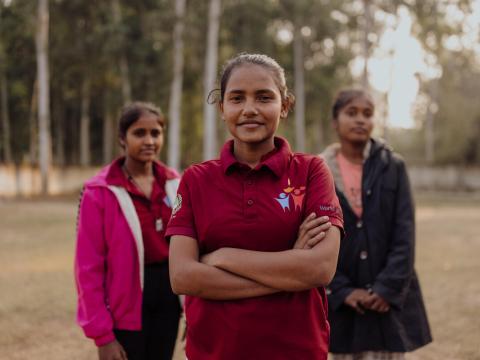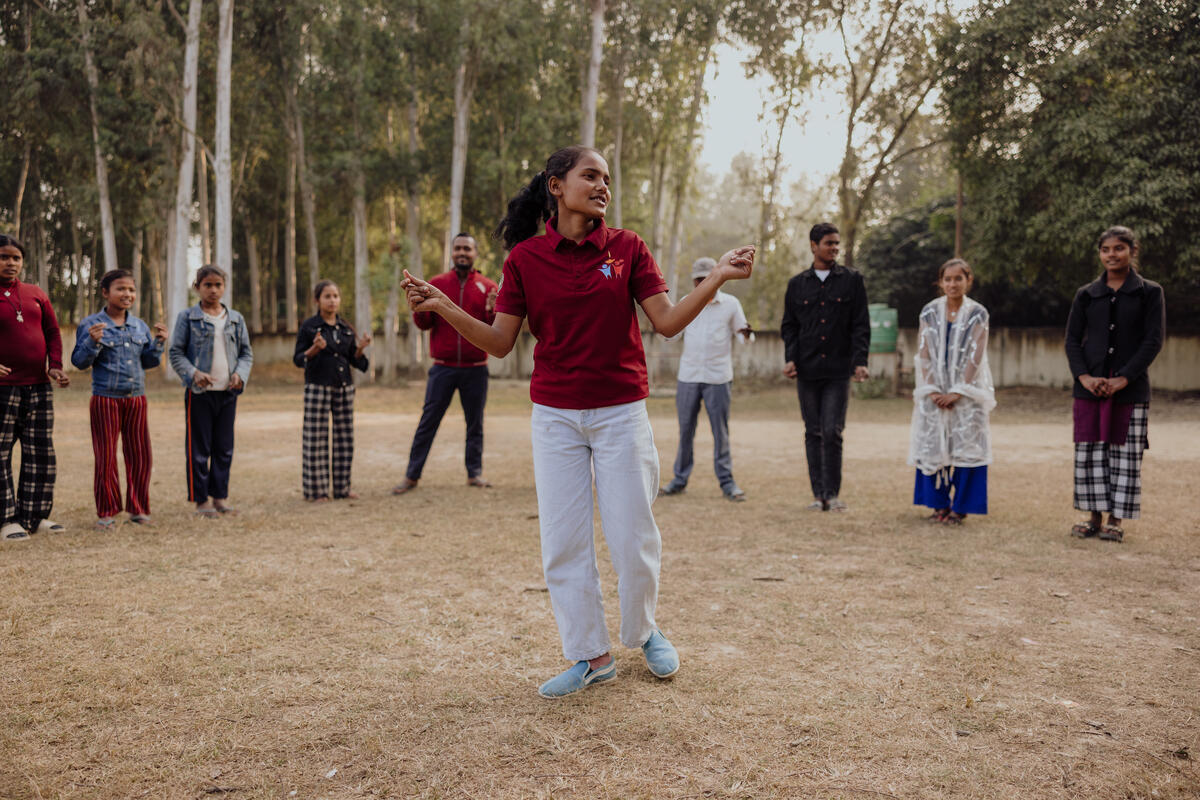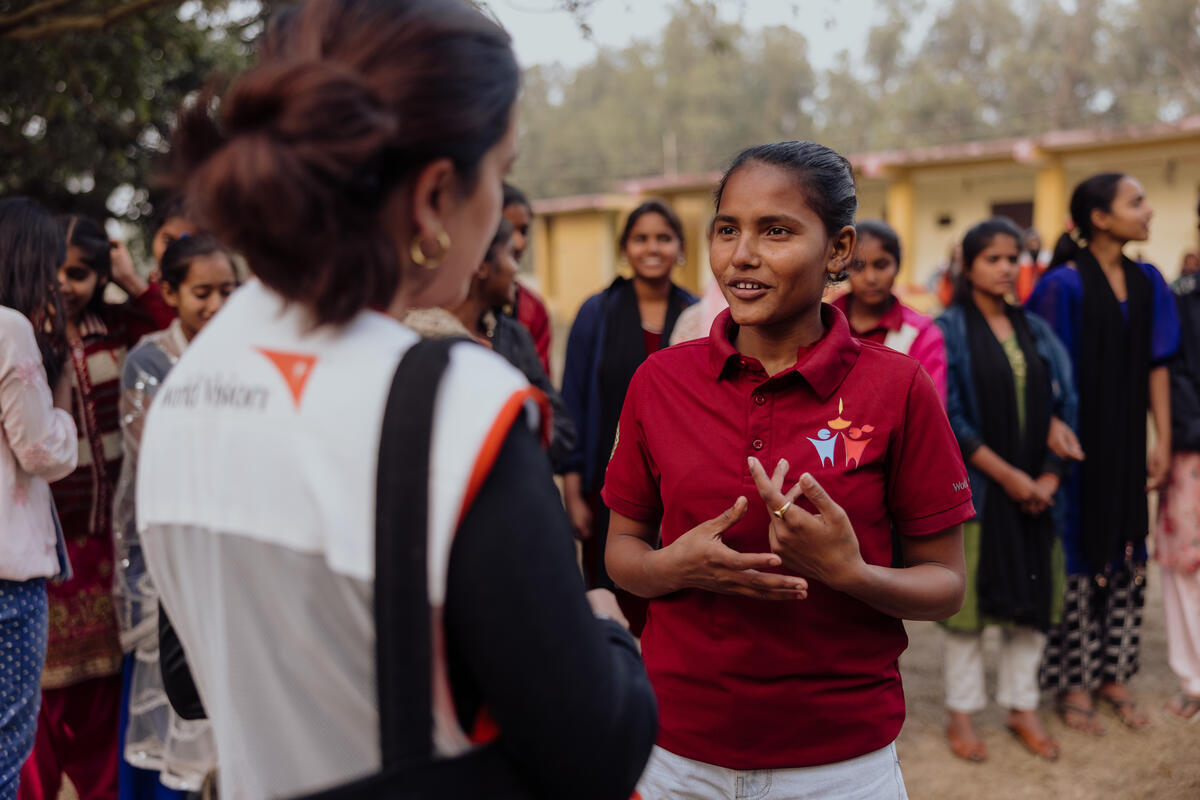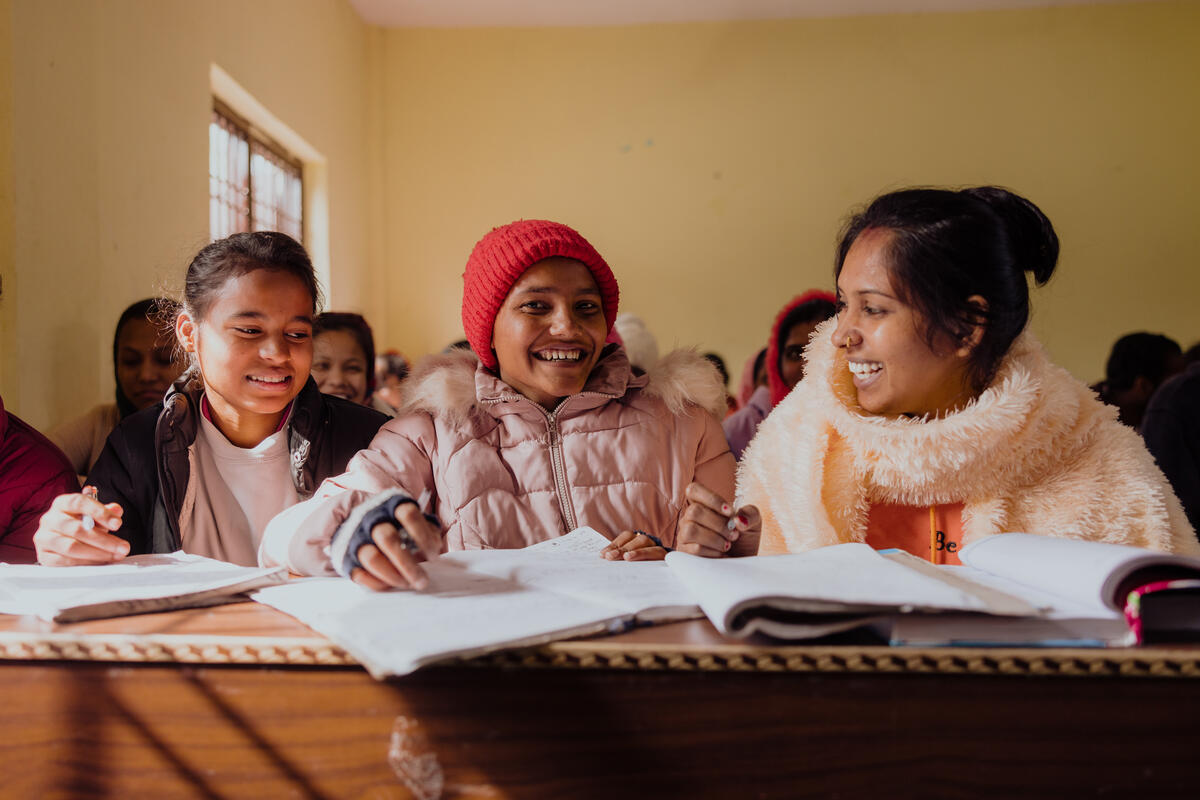From child marriage survivor to advocate for change: Neha's story

In Nepal, on the border of India, exists a community where for girls getting married as a child used to be the norm, and finishing high school was the exception. Where arranged marriage is expected and marrying for love is a rarity. For girls in this community, completing high school isn’t taken for granted, but something they’ve fought against generational barriers for years to achieve.
At the heart of these changes is Neha. At 18 years old, Neha has already stopped three child marriages and wielded so much influence that she is preventing countless others from happening. Backing her is a World Vision sponsorship program that provides the tools for kids like Neha to go to school, which often is the starting point for shifting mindsets.

It’s unbelievable that just four short years ago Neha was in the same position as the girls she is helping now. At 14 years old, she found out her parents had agreed to marry her off to a “rich man from India, who owned a mobile phone shop,” as Neha explains. The man who was much older, had been married 5 days prior but had already lost that wife who had run away. Neha saw the red flags, but her parents were blinded by the perceived benefits, such as not having to pay a dowry since he’d already received one from the previous girl.
Neha did everything she could to try and refuse the marriage. She tried pleading with her parents and when that didn’t work, she even attempted to throw herself into hot oil to demonstrate how seriously unhappy she was about getting married. In a last-ditch effort, she escaped to her sister’s house and believed she would never see her parents again.
During that time the family came across a World Vision intervention focused on the importance of education. Neha’s parents received training on the benefits of education and were encouraged to keep their five daughters in school. Neha was delighted when she discovered that she was able to return to school and avoid getting married. A year later when the opportunity to get married came up again, her parents were able to support her in her decision to refuse.

It has been four years since Neha first faced the threat of child marriage, but today she is finishing up her studies and leading the charge to end child marriage in her community. In the afternoons after school, Neha facilitates training with other young girls. With the support from World Vision, she has a network of activists who she is training on how to resist child marriage as well as detect other instances of it happening in the community and report them to the authorities. This network provides ears on the ground to what’s really happening in the community as the girls are trusted by their peers who feel safe confiding in them.
She is a beacon of hope for young girls who suddenly feel they have someone they can turn to and proof of the amazing things that can happen when a girl stays in school.
Child marriage robs girls of their childhood and the opportunity to fulfil their potential or be independent. Statistics show that girls who get married before the age of 18 are much more likely to be victims of abuse and less likely to stay in school.

HOW SPONSORSHIP CAN PREVENT CHILD MARRIAGE
Fighting child marriage can be difficult, especially in places where the importance of traditional practices, outweighs the importance of the law, meaning that simply making child marriage illegal (which it is in Nepal) is not enough.
The best way to delay marriage is by keeping girls in school, and there’s data to back this up: According to the World Bank, for every year a girl stays in secondary education, her likelihood of getting married decreases by six percentage points.
This is why World Vision’s sponsorship program puts education at the centre of its programming, especially in places like Nepal where rates of child marriage are higher.
Sponsoring a girl and providing them with education is not only our best chance at eradicating child marriage but provides an avenue to long-term sustainable change. When girls are educated, they are less likely to become pregnant or be victims of violence. Education provides girls with the tools to break free from the chains of generational poverty, creating a brighter future for themselves and those around them.
And if you need proof of that, just look at Neha. World Vision staff in Nepal shared that children like Neha have been pivotal in driving down child marriage in the areas where World Vision operates. Since 2018 more than 500 child marriages have been stopped, and most of those have been stopped by other children.
When you sponsor a girl, you open the doors to a world of possibility – not just for the girl you sponsor, but for their entire community. We urgently need sponsors for 1,000 girls by 11 October, International Day of the Girl.